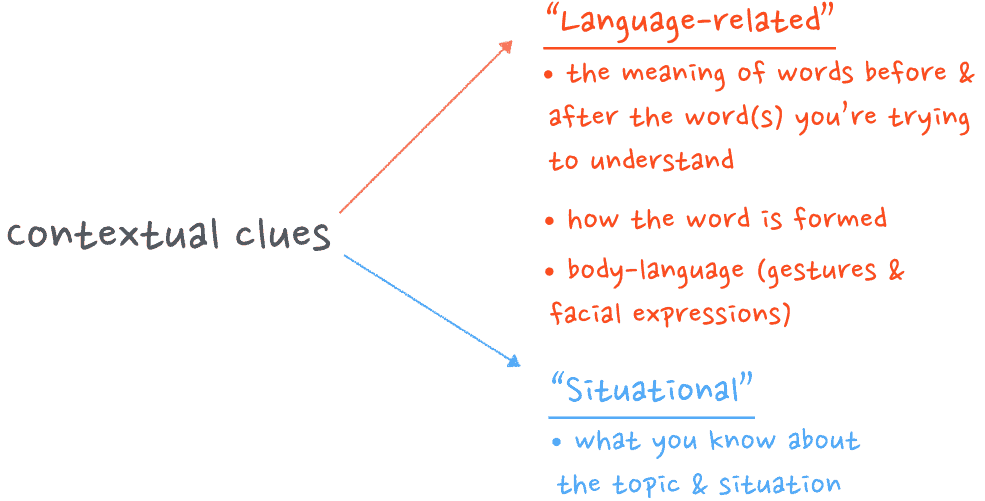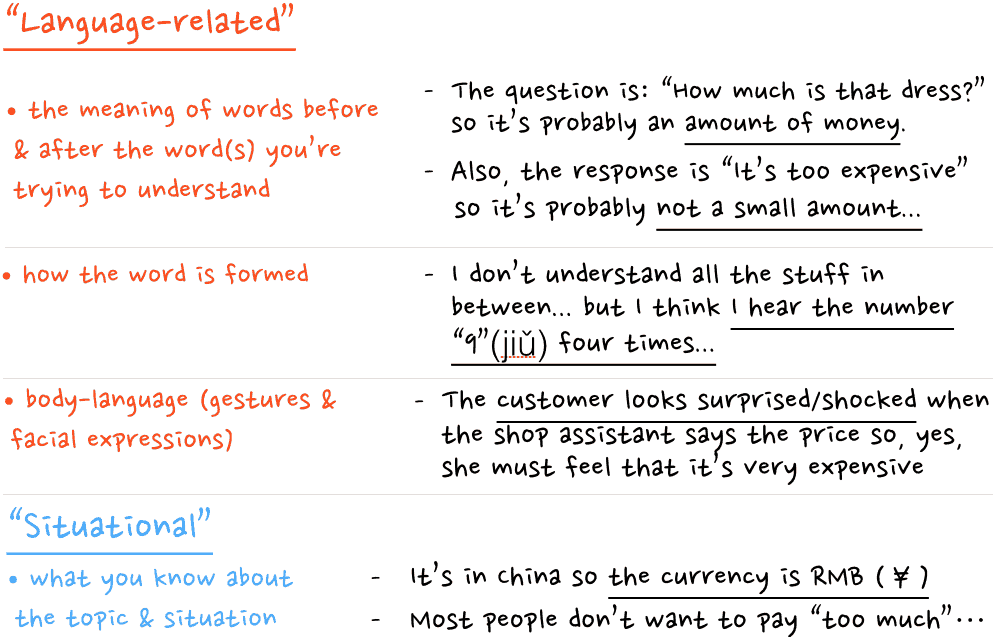No matter what you listen to, contextual clues can often help you figure out the meaning of unknown words and get the gist of what you’re hearing.
Are you using these clues effectively..?

Using these clues effectively and automatically is a skill that you can improve quickly through practice. How? Let’s look at an example.
Example
Let’s say you’re going to listen to a short conversation between a shop assistant and two customers in a small clothing store. (you will in fact do that below…)
1. Before you listen, activate your background knowledge and predict what you’ll hear by asking yourself:
- What do I already know about this topic/situation? (e.g. What are some things customers often want to find out before buying clothes?)
- What words and phrases do people often use in this type of situation? WRITE THEM DOWN.
Watch the video and see if any of your answers are similar to what you hear/see in the video.
2. If there are important phrases or words in the conversation that you don’t understand, listen again and try your very best to use contextual clues to guess the meaning.
For example, if you didn’t understand the shop assistant’s answer in the conversation…

… you might use the clues as below to guess that the shop assistant said “Nine thousand nine hundred ninety-nine Yuan”…

Summary #5: “Guess Meaning From Context”
- Contextual clues can often help you figure out the meaning of unknown words and get the gist of what you’re listening to.
- Develop the skill of using contextual clues by 1) actively predicting what you will hear before you listen and 2) using your knowledge of both the language and the topic/situation to work out the meaning of words and phrases that you don’t understand.

